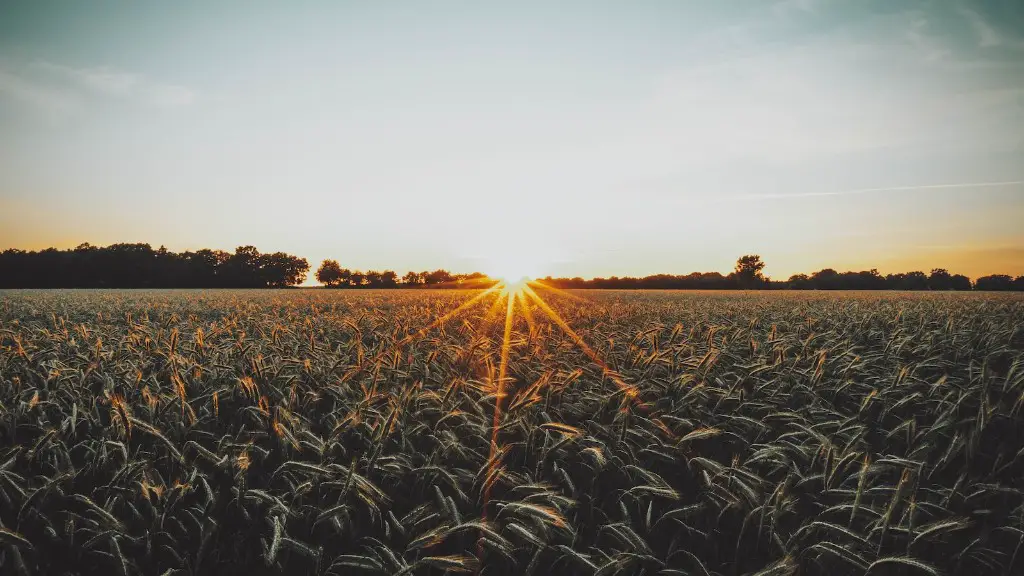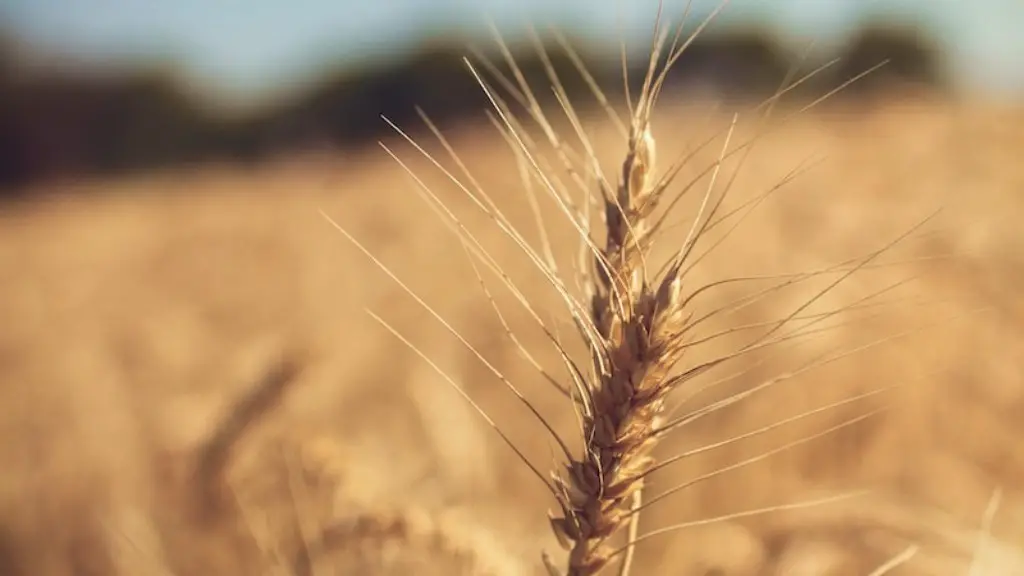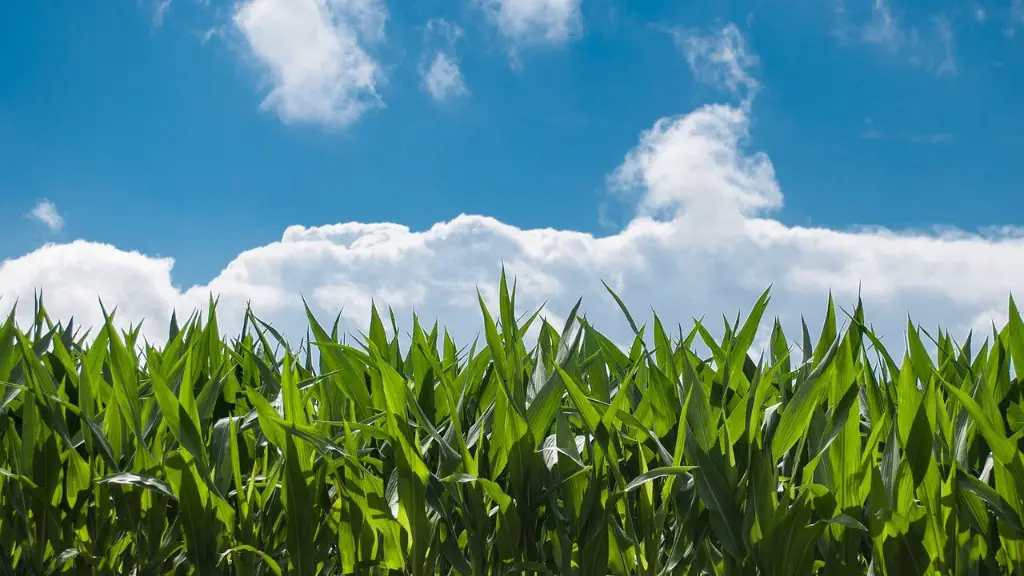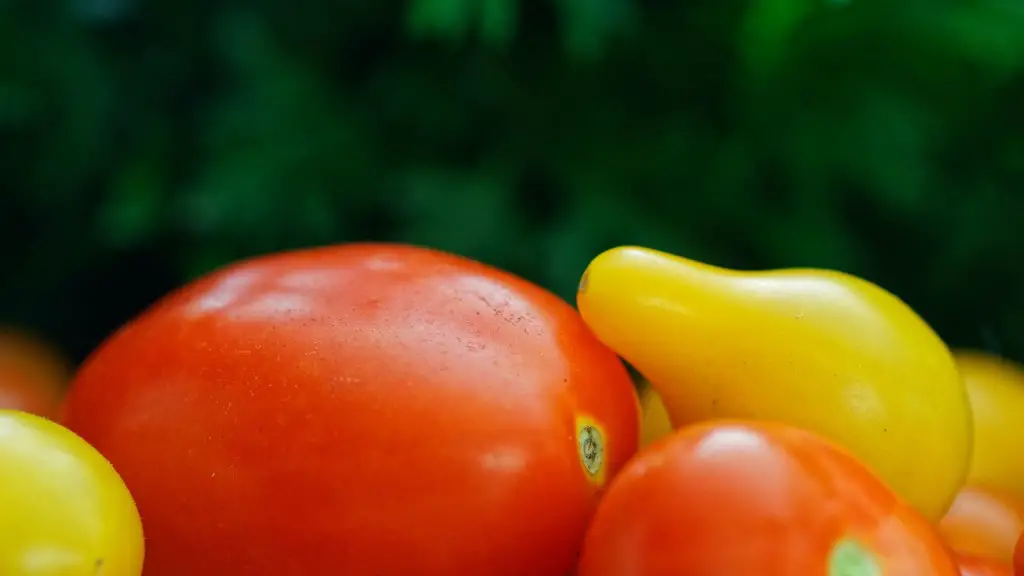Intensive agriculture is a type of farming that utilizes high-yield crops, usually in combination with chemical fertilizers, pesticides, and mechanized techniques to make the most of limited plot space. This is in contrast to traditional agriculture, which relies on natural resources such as human labor and natural fertilizers. Intensive agriculture is a key element of modern industrial farming and has enabled countries to produce far greater yields than they used to. It has also contributed to the global population’s increasing demand for food and fiber, reducing hunger in certain parts of the world.
Intensive agriculture enables farmers to make the most of available resources by maximizing their yield. This helps to make the best use of the limited amount of land and resources available to them, creating economies of scale where one large farm would produce more than several smaller ones. It also allows farmers to use the latest technology such as genetic modification or automation to increase crop yields and reduce costs. This technology also helps farmers minimize their impact on the environment, by controlling pests and reducing the use of chemical fertilizers.
Intensive agriculture is also beneficial for the local economy, as it creates jobs in the agricultural sector. This helps to boost the local economy and increase employment opportunities, as well as lower the cost of food. It also reduces the need for local farmers to migrate to urban centers for employment, reducing poverty and improving quality of life in rural communities.
In addition to its economic benefits, intensive agriculture also has the potential to improve the environment. By reducing the use of chemical fertilizers and pesticides, it can minimize the risk of environmental degradation. It can also help to reduce the need for deforestation, as large-scale farms can provide a much higher output per unit of land than smaller farms, while still maintaining a good level of vegetation.
However, intensive agriculture can also be detrimental in certain cases. It can cause soil degradation and contamination, as well as water pollution and waste management problems. It can also be expensive to maintain, and can result in decreased biodiversity as a result of the monoculture approach. As a result, it is important to consider the potential risks and benefits of intensive agriculture before committing to it.
Environmental Risks
The intensive use of chemical fertilizers and pesticides as part of intensive agriculture has the potential to cause serious environmental damage. Excessive use of these substances can cause soil erosion and contamination, and can also lead to water pollution. This can affect the environment for years to come and can have serious consequences for local wildlife and ecosystems.
In addition, intensive agriculture can also cause deforestation. By replacing existing vegetation with large mono-crops, it can result in a decrease in local biodiversity. This can have negative effects on the local environment, as well as the plants and animals that depend on the area.
Finally, intensive agriculture can also lead to increased greenhouse gas emissions. High use of fossil fuels to power machinery, as well as the production of fertilizers, can lead to higher global warming potential. This can have long term implications for the environment, as well as the agricultural sector.
Economic Risks
Intensive agriculture can be expensive to maintain. The use of advanced technology, such as genetic modification, can be costly and difficult to implement. Additionally, the cost of purchasing chemical fertilizers and pesticides can be quite high. This can lead to increased production costs, making it difficult for small-scale farmers to compete.
In addition, intensive agriculture can also cause economic inequality. Large-scale farms often employ fewer workers than traditional agriculture, resulting in fewer jobs and higher levels of unemployment. This can have a negative effect on local economies, as well as on the overall quality of life.
Finally, there is also the potential for misuse of cultivable land and resources. Large-scale farms may use more resources than smaller farms, leading to a decrease in available land and water. This can cause conflict between communities and lead to exploitation of natural resources, creating long term environmental and economic damage.
Social Risks
Intensive agriculture can also have a negative effect on local cultures and communities. The use of automation and genetic modification have the potential to cause a loss of traditional farming methods and technologies, which can have a negative impact on local cultures. Additionally, the use of chemical fertilizers and pesticides has been linked to health risks, such as increased rates of cancer in some communities.
In addition, there is also the potential for exploitation of local labor. Large-scale farms may employ fewer workers than traditional agriculture, resulting in lower wages and possible mistreatment of employees.
Finally, there is also the potential for water, herbicide, and pesticide contamination. The use of fertilizers, pesticides, and herbicides can result in contamination of local streams, rivers, and groundwater, leading to health risks for local communities.
Conclusion
Intensive agriculture is a powerful tool for modern farming, but it comes with many potential drawbacks. The use of chemical fertilizers, pesticides, and automation can lead to environmental, economic, and social risks, making it important to consider the risks and benefits before committing to the practice. Ultimately, however, intensive agriculture can be an effective way to increase food production, create jobs, and reduce poverty, if used responsibly and within ecological limits.



